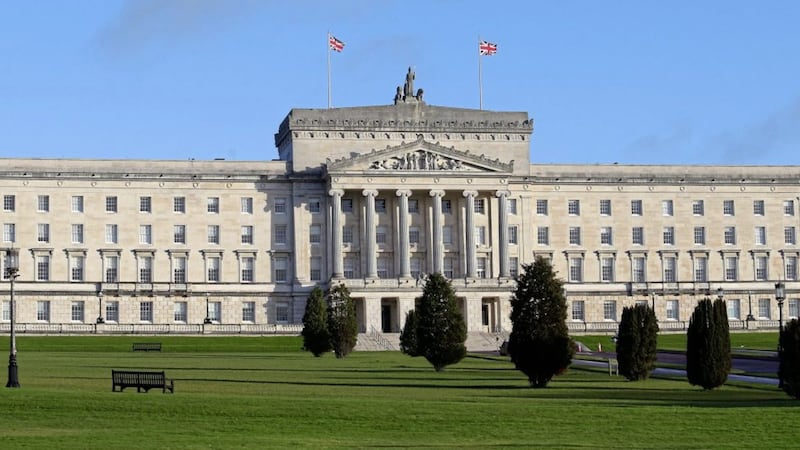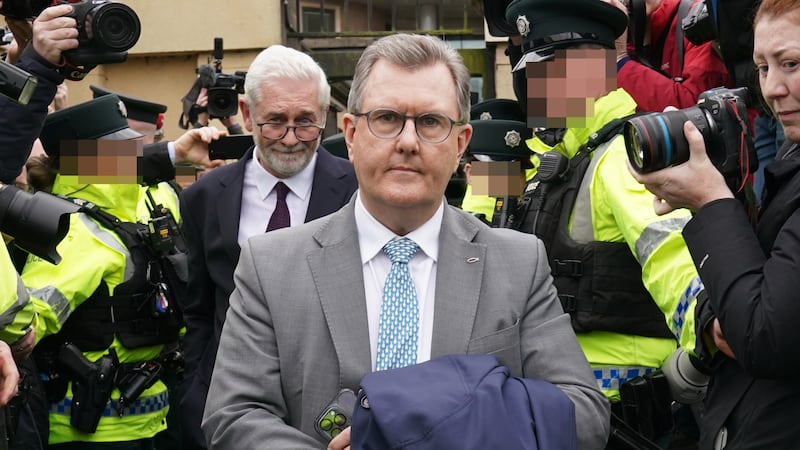The government should consider using neutral "outsiders" in Northern Ireland negotiations to avoid the perception of conflicts of interest following the deal with the DUP, a former secretary of state has said.
Labour peer Lord Reid of Cardowan warned the Conservative administration would be "extremely unwise and utterly complacent" to ignore the consequences of striking an agreement with the DUP.
He stressed he was not questioning the integrity of government ministers, but argued the perception of a conflict needed to be "countered".
Lord Reid also pointed out there was a precedent of using independent figures in Northern Ireland, including US Senator George Mitchell who chaired the peace talks and Canadian General John de Chastelain, who oversaw the decommissioning of terrorist weapons.
He argued it would be "a tragedy" if a move to bring stability to Britain caused instability to the province and the peace process.
Theresa May has been accused of jeopardising peace in Northern Ireland, after reaching a £1 billion deal with the DUP to prop up her minority government.
Under a "confidence and supply" arrangement intended to last until 2022, the DUP guaranteed that its 10 MPs will vote with the government on the Queen's Speech, the Budget, and legislation relating to Brexit and national security.
In an attempt to allay concerns about the impact on the peace process, the deal makes clear that Conservatives remain committed to the restoration of powersharing and that the DUP will have "no involvement in the UK government's role in political talks in Northern Ireland".
Speaking in the House of Lords during a debate on the Queen's Speech, Lord Reid highlighted the role of the UK government in the peace process "as a joint and even-handed guarantor".
While he did not share the "pessimism" of the former Tory prime minister Sir John Major, who has warned over the deal with the DUP, Lord Reid added: "However, the government would be extremely unwise and utterly complacent to ignore the consequences of the recent accommodation with the DUP, particularly in perception.
"Because the perception of conflict of interest in their role as joint guarantor of the Belfast Agreement, while at the same time being in accommodation with one of the parties to that agreement and one of the contestants during the negotiations, that is particularly difficult.
"Especially given the number of extremely contentious issues which remain to be done."
If he was asked to give advice to the north's secretary of state James Brokenshire, Lord Reid said: "I would say to him to look at the history of recognising the very real perception of conflict of interest now arises and consider the use of neutral chairmen to any forthcoming negotiations in the province.
"This is not to question the integrity of the ministers of the government, because there's a legitimate precedent for this."
Highlighting the examples of Senator Mitchell and General de Chastelain, he said: "All of these outsiders and many more like them assisted hugely in progressing the peace process, and similar figures could I believe and should be asked to do so again.
"I do that not because I question the integrity of the government but because we know it's not the matter of the substance of a conflict of interest but the very perception of the conflicts of interest that has to be countered.
"Because it would a tragedy if an arrangement meant to bring stability to the UK brought us instead instability to Northern Ireland and one of our finest achievements in many many years."
Former UUP leader Lord Empey said no devolved administration would look a "gift horse in the mouth", but he was concerned about reaction to the deal.
"I could make a case all day for extra resources, but the fact that it was linked to votes in the Commons makes it look bad."
Lord Empey said he could well understand why people in Wales and Scotland were unhappy, and warned that if the funding formula for the devolved administrations unravelled it could "cost us dear in the long run".
It was a concern that Unionism in Northern Ireland had been linked to cash, he said. "I've never been a believer in begging bowl Unionism, but some in the media have spun it this way. Unionists must never create the impression that their Unionism is cash-based."
The DUP's Lord Browne of Belmont welcomed the deal and said he hoped it would provide an additional incentive to work towards the successful conclusion of talks on restoring devolved government.
"Petty sectarian wrangling must not be allowed to frustrate the achievement of objectives that require the re-establishment of stable government in Northern Ireland," he said.
Antoerh former UUP leader now Tory peer Lord Trimble said the prime minister had been "very generous" to the DUP, leaving her open to criticism.
He said the DUP should "show their appreciation and reduce the prime minister's exposure" by doing everything they could to restore the assembly.



